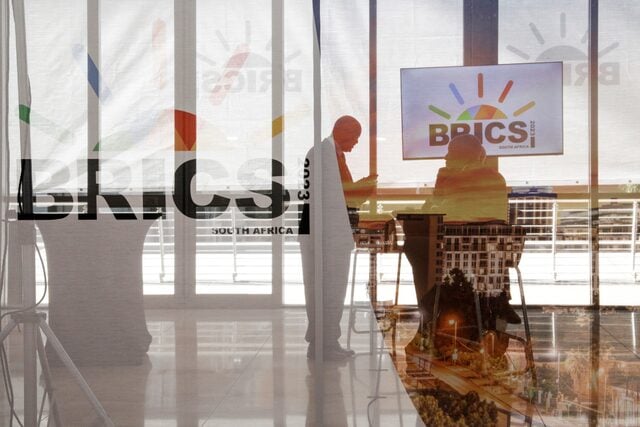Despite being listed as a member on the BRICS website and attending a meeting in Brazil, Saudi Arabia has not formally joined the BRICS bloc of nations, according to two sources with direct knowledge of Saudi policy. This decision is influenced by ongoing negotiations with the U.S. on nuclear and technology deals, as well as an upcoming visit from President Donald Trump, making the issue diplomatically sensitive.
BRICS, initially formed by Brazil, Russia, India, China, and South Africa to challenge Western dominance, has expanded to include emerging economies like the UAE, Egypt, and Indonesia.
Riyadh is hesitant to risk angering the U.S. while crucial negotiations are underway, according to a diplomat and one of the sources. Saudi Arabia sent its deputy foreign minister to a BRICS meeting in Rio de Janeiro on April 29, where ministers failed to agree on a joint communique.
Read more: UAE: 25 Indians Face Death Sentences
This ambivalence highlights Saudi Arabia’s delicate balancing act between China, its largest oil export customer, and the U.S., its key security and technology partner.
Robert Mogielnicki from the Arab Gulf States Institute in Washington suggests that Saudi Arabia sees value in engaging with BRICS while prioritizing its relationship with the U.S., at least in the short term.
In January, Trump demanded that BRICS commit to not creating a new currency or supporting another currency that would replace the U.S. dollar, or face 100% tariffs against BRICS nations.
While maintaining its alliance with the U.S., Saudi Arabia is also strengthening trade ties with China. In February, Saudi exports to China increased by 20.6% year-on-year, reaching 15.2 billion riyals ($4.05 billion). Between 2005 and mid-2024, Chinese investment and construction contracts in Saudi Arabia totaled nearly $71 billion.
The U.S. is expected to offer Saudi Arabia an arms package worth well over $100 billion, with a potential announcement during Trump’s visit.
BRICS has aimed to reduce reliance on the U.S. dollar, but the dollar remains the world’s primary reserve currency.
Steffen Hertog from the London School of Economics notes that while BRICS provides a platform to voice concerns about American actions, it lacks the cohesion to provide public goods on currency cooperation, security, or economic integration.
Saudi analyst Aziz Alghashian believes Saudi Arabia is leveraging its position, viewing the U.S. as the main actor while recognizing the utility of other partnerships.



